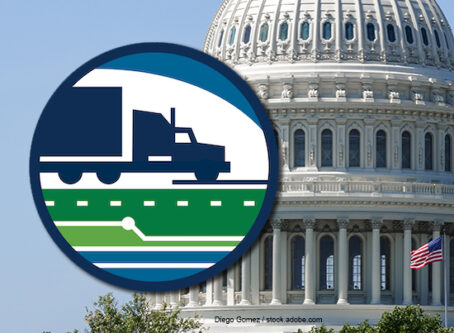UPDATE: Statehouses working to adapt to coronavirus disruption
Coronavirus concerns continue to cause legislatures around the country to adjust their timetables for conducting legislative business, and how they do the public’s work in the near future.
At the onset of COVID-19 concerns, statehouses started to change schedules and also acted to limit building access by the public. Committee meetings and floor activities soon were postponed or cancelled.
In the following weeks, half of all state legislatures postponed their legislative work. The focus in statehouses around the country now is to try to get work done without actually being together in one building.
Statehouses going virtual
Most legislative action at the state level is focused on addressing issues related to COVID-19, or to tackle pressing topics that include upcoming budgets.
Additionally, certain legislatures are taking action or pursuing rule changes to permit business to be done in a virtual format.
Earlier this month, the New Jersey Senate opened its first-ever remote voting session.
Across the state line in New York, the Senate has approved rule changes to allow remote voting. The Assembly is also considering the change.
Similarly in Vermont, both chambers have acted to approve a measure to authorize virtual voting. Since then, the House has conducted virtual committee meetings and floor sessions.
Legislatures in North Carolina and Utah began holding virtual meetings on Tuesday. In the Tar Heel State, floor votes will continue to take place in-person.
The South Dakota Legislature held its recent veto day remotely.
On Wednesday, the Virginia General Assembly held a veto session. Legislators did not return to the capitol to conduct business. Instead, the state Senate met at a nearby museum. The House convened under a tent outside the statehouse.
There are at least a dozen more statehouses where legislation has been introduced or approved to authorize lawmakers to participate remotely. States included are Arizona, California, Colorado, Connecticut, Iowa, Kentucky, Michigan, Minnesota, New Hampshire, Oklahoma, Pennsylvania, and Rhode Island.
The Oregon and Wisconsin legislatures already had rules in place to permit remote participation in an emergency.
State legislators contract the coronavirus
Despite efforts to keep legislators from possibly contracting the virus while doing the peoples’ work, there are more than a dozen statehouses where at least one legislator has tested positive for coronavirus.
In Georgia, the General Assembly recently met in special session to address efforts to combat COVID-19 only to find out one leading Senate lawmaker tested positive for the virus while at work. As a result, all 236 members of the state’s House and Senate and employees were urged to self-isolate through the end of the March.
The Legislature has since been adjourned until a future date. In the meantime, the House has created a committee to examine when to resume the 2020 session.
Deaths of state lawmakers attributed to the virus are reported in Louisiana, Michigan and South Dakota.
Statehouse suspensions ongoing, others return
Tennessee’s General Assembly is expected to be recessed for about 11 weeks. Legislators in the Volunteer State have been out since mid-March. They are planning to return on June 1.
The Kansas Legislature raced in mid-March to approve a 10-year, $10 billion transportation spending plan. State lawmakers were then sent home. A veto session is scheduled for May 6 at the earliest.
In Colorado, the General Assembly has been adjourned since March 14. The state Supreme Court has since given the legislature flexibility to extend the session beyond the original May 6 adjournment date. Lawmakers are scheduled to return May 18.
Elsewhere, the Kentucky Legislature got back to work at the capitol on April 14.
The Arkansas House and Senate are set to reconvene on Monday, April 27.
After previously announcing in mid-March they would take a two-week break, the New Hampshire legislature has since extended their adjournment to May 4.
In Alaska, the Legislature is set to reconvene by the first week of May.
In other statehouses there is no clear date for legislators to return. Statehouses that are adjourned or recessed until further notice: Delaware, Louisiana, Mississippi, Nebraska, and South Carolina. The Hawaii Legislature has been suspended indefinitely.
Additionally, the New York Assembly has not met since mid-March. The state’s Senate will not meet until further notice.
The Illinois House has adjourned until further notice. Meanwhile, the state’s Senate is adjourned until Tuesday, April 28.
Elsewhere, the following state legislatures have taken multiple weeks off from official business: Alabama, California, Connecticut, Iowa, Minnesota, Missouri, Ohio and Rhode Island. These statehouses have return dates from late April to mid-May.
Other regular sessions end early
In Maryland, the General Assembly shut down in mid-March – about three weeks earlier than was scheduled. Plans to hold a special session have been postponed until after May to pass any necessary legislation.
The Maine Legislature has shut down for the year after approving a supplemental budget and passing legislation related to the virus. The session ended about one month earlier than was scheduled.
Idaho lawmakers also adjourned for the year – one week earlier than was scheduled. Likewise, the Connecticut General Assembly shut down two weeks prior to the scheduled May 6 adjournment.
The Arizona Legislature has not met for multiple weeks. Instead of trying to return to finish the regular session, the legislature is set to officially adjourn for the year on May 1.
Statehouses largely unaffected
There are 10 legislatures that that were able to adjourn on their regular schedule: Florida, Indiana, New Mexico, Oregon, South Dakota, Utah, Virginia, Washington, West Virginia, and Wyoming. Most of the above mentioned states had adjournment dates prior to mid-March.
Four states did not meet in regular session this year: Montana, Nevada, North Dakota and Texas.









